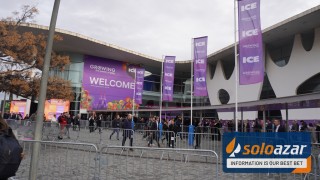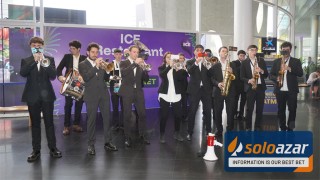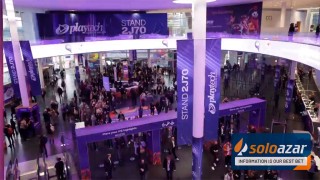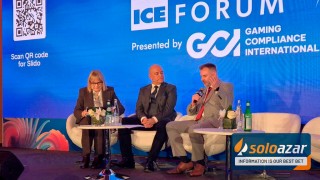Gambling reform in Australia awaits the states, but most have already called for action
Monday 18 de September 2023 / 12:00
2 minutos de lectura
(Canberra).- Gambling reform in Australia presents differences of opinion in the Territory. Despite the mix of federal and state responsibilities on some recommendations, gambling ads are within commonwealth power.

When parliament’s gambling inquiry report was handed down in June it landed with a thud.
Its 31 recommendations include a total ban on advertising for online gambling within three years, as well banning inducements – such as bonus bets – and trailing commissions.
These are ideas big enough to draw dire warnings about the financial impact for sporting codes and commercial broadcasters, and the dose of lobbying in Canberra that comes with it.
As the social services minister, Amanda Rishworth, has noted, 27 of the inquiry’s 31 recommendations “involve or impact states and territories, so we’ve got to work through that”.
The communications minister, Michelle Rowland, was asked last week about banning inducements. She said the government wants to respond in “a holistic and comprehensive manner” but that it had to be sure reforms were “effective” at achieving harm minimisation, and they “require a degree of cooperation” with the states.
So it seems the federal government’s response awaits that of the states. The state, federal and territory ministers responsible for gambling – a group reconstituted in February after a six-year hiatus – will meet in the last week of September.
This week, while announcing laws to ban credit card payments to online gambling sites, Rishworth said minimising gambling harm was “not a set-and-forget exercise”.
“And I look forward to working with my state and territory counterparts on what comes next to continue this positive change.”
That formulation of “not a set-and-forget” hints that the federal government will aim for an evolution of the existing national consumer protection framework for online wagering.
States and territories don’t yet know what the commonwealth is planning, but many of them are calling more for revolution than evolution.
Up the bolshier end of the spectrum is South Australia, which has a gambling code of practice that contains rules on advertising including a blackout on radio between 6am and 8.30am and television between 4.00pm and 7.30pm, Monday to Friday.
It submitted in favour of a ban on gambling advertising on television, streaming services and social media.
Shane Rattenbury, the Australian Capital Territory’s attorney general, says he is keen for his jurisdiction to follow suit in banning ads.
In evidence to the social policy and legal affairs committee inquiry, Rattenbury said the ACT supports the commonwealth taking the lead as this would be the most effective and would prevent jurisdictions being “picked off” by interests arguing for weaker rules.
The Queensland government noted gambling ads are “obtrusively delivered through television broadcasts” and also supported a ban on inducements.
It warned that, despite restrictions on gambling ads on C, P or G-rated programs between the hours of 4pm and 7pm, the ads still air during PG-rated programs such as The Simpsons and that the family-friendly hours of 7pm to 8:30pm are “saturated with gambling advertising”.
The Tasmanian Liquor and Gaming Commission noted that it had received complaints about ads on TV and digital ads, which are targeting the personal devices of people who had excluded themselves from gambling.
Because most wagering operators are licensed in the Northern Territory, many states argued for a national approach.
But New South Wales submitted that it “supports” the current system that regulation of gambling “is a matter for the states and territories”.
That’s because of the “competitive tension” between states helping to trial different approaches, and pressure on “jurisdictions with less effective protections … to adopt policies developed by their peers”.
Then there is timing: states think the federal government may take until the end of the year to announce its response to the inquiry.
The committee said the three-year phase-in period of the ban “should commence in December 2023, resulting in the prohibition of all online gambling advertising by December 2026”.
There aren’t too many sitting weeks left in the year to navigate complex legislation through parliament – but the political will is there with the Greens and crossbench itching for a ban. Even the opposition leader, Peter Dutton, thinks the ads should be banned during game time.
The prime minister, Anthony Albanese, has called the ads “annoying” and Rowland accepts the “status quo isn’t good enough”.
We’re close to finding out whether that annoyance will be enough to use the sweeping inquiry report as an “evidence base” (Rowland’s formulation) for reform or the actual blueprint.
By Paul Karp
Categoría:Legislation
Tags: Sin tags
País: Australia
Región: Oceania
Event
ICE Barcelona 2026
19 de January 2026
Darío Zutel talks all about Win Systems' presence at ICE Barcelona 2026
(Barcelona, SoloAzar Exclusive).- Darío Zutel, Executive Chairman of Win Systems, reviews the results achieved at ICE Barcelona 2026, highlights the strategic quality of the contacts generated, the momentum of cashless solutions with WIN PAY, and outlines the company's innovation and expansion plans across the Americas, Europe, and other key international markets.
Monday 09 Feb 2026 / 12:00
Air Dice at ICE Barcelona 2026: Building Momentum Through Innovation and Strategic Market Expansion
(Barcelona, SoloAzar Exclusive).- In this interview, Erkki Nikunen, Partner & CBDO of Air Dice, reflects on the company’s performance at ICE Barcelona 2026, the strong reception of its FateQuest series, key industry trends shaping the sector, and Air Dice’s strategic priorities for growth, partnerships, and market expansion in 2026.
Monday 09 Feb 2026 / 12:00
Merkur Group Shines in Barcelona with Triple ICE Triumph
(Espelkamp/Barcelona).- Merkur Group secures three prestigious international accolades for operational excellence, social commitment, and standout exhibition experience.
Friday 06 Feb 2026 / 12:00
SUSCRIBIRSE
Para suscribirse a nuestro newsletter, complete sus datos
Reciba todo el contenido más reciente en su correo electrónico varias veces al mes.



















